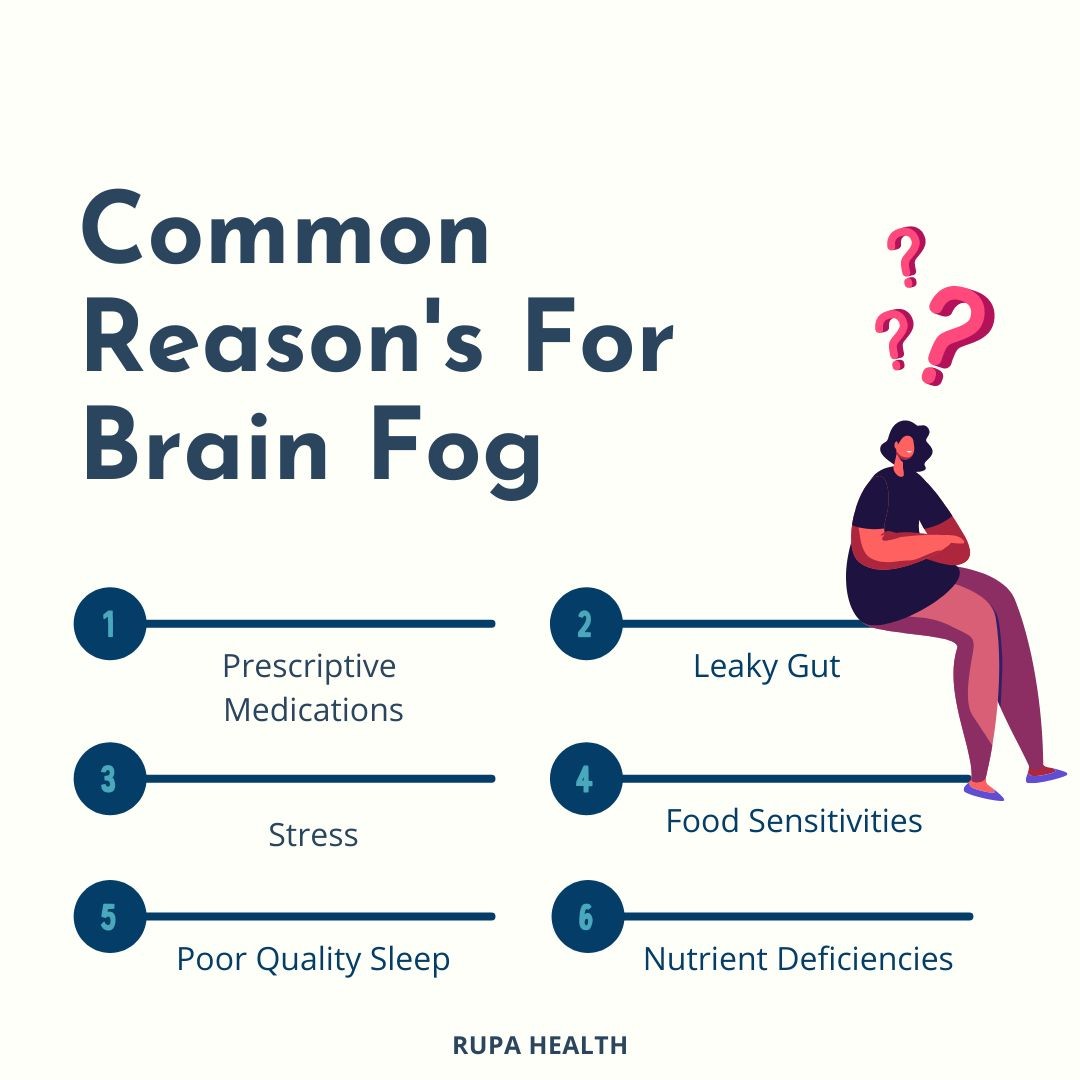
Contents
Causes of Brain Fog
Have you ever experienced a fuzzy-headed feeling or difficulty focusing? This is known as brain fog. It is not a medical condition or a diagnosis, but rather a term used to describe issues with focus, memory, logic, and problem-solving. While it is not usually indicative of another medical condition, it can sometimes be a sign of an underlying health problem that should be addressed by a doctor. In this article, we will discuss the causes of brain fog to help you identify when medical attention is necessary.
Stress, Anxiety, and Depression
- Feelings of hopelessness, constant worry, sadness, or emptiness
- Feelings of guilt, worthlessness, and helplessness
- Loss of interest in activities you usually enjoy
- Low energy levels
- Changes in appetite and weight
- Sleep pattern disruptions
If you suspect that you may be experiencing depression or chronic anxiety, it is important to seek medical help. Ignoring these conditions can exacerbate symptoms. Treatment options such as medication and therapy can provide relief.
Lack of Sleep
Inadequate sleep, less than 7 to 8 hours per night, can contribute to memory and concentration problems. Sufficient rest allows the brain to recharge and function optimally when awake. It is recommended to establish a consistent bedtime routine that allows for 7 hours of uninterrupted sleep.
If you spend enough time in bed but still feel unrested, you may have a sleep disorder such as sleep apnea. This condition involves repeated interruptions in breathing throughout the night, resulting in poor sleep quality and brain fog. Additional signs of sleep apnea include waking up feeling exhausted, snoring, gasping or choking during sleep, and morning headaches or dry mouth. Your partner may also observe your breathing pauses during sleep.
If you suspect sleep apnea, consult with your doctor. Treatment can improve the quality of your sleep and alleviate brain fog. Left untreated, sleep apnea can increase the risk of other serious health complications.
Menopause and Hormone Changes
Fluctuations in hormone levels, such as those experienced during perimenopause, menopause, changes in birth control, or pregnancy, can affect focus and cognitive function. Additionally, night sweats during perimenopause and menopause can disrupt sleep, leading to grogginess the following day.
In most cases, when hormone levels stabilize after childbirth, changing birth control, or completing menopause, brain fog symptoms tend to improve. This typically occurs within a few months.
Medications
Certain medications, specifically anticholinergics, can contribute to brain fog by interfering with brain neurotransmitters and impairing clear thinking. Examples of anticholinergic medications include Oxybutynin (Ditropan), which is used for overactive bladder, Diphenhydramine (Benadryl), an over-the-counter allergy medication that some people use as a sleep aid, and Amitriptyline (Elavil) for depression treatment. Chemotherapy medications can also cause brain fog, commonly referred to as "chemo-brain." Fortunately, chemo brain usually resolves after completion of cancer treatment.
If you suspect that your medications are causing brain fog, consult with your doctor or pharmacist. They may be able to adjust your dosage or prescribe an alternative medication.
Low Levels of Vitamin B12
Vitamin B12 is crucial for maintaining healthy nerves and blood. Inadequate intake of this vitamin can lead to difficulty focusing. Some individuals may not consume enough B12-rich foods like meat, eggs, and dairy products, while others may have an impaired ability to absorb it, which can occur naturally or as a result of weight-loss surgery.
In addition to brain fog, low levels of vitamin B12 may manifest as muscle weakness, numbness or tingling in the extremities, difficulty walking, and excessive fatigue or weakness. As individuals age, their ability to absorb B12 decreases. If you believe you have a B12 deficiency, consult with your doctor. Treatment may involve B12 shots, pills, or a daily multivitamin.
Multiple Sclerosis
Multiple sclerosis (MS) affects the central nervous system and disrupts the transmission of information between the brain and other parts of the body. This can result in difficulties with concentration, problem-solving, focus, and even speech and comprehension. MS often presents with additional symptoms including muscle weakness, numbness, fatigue, vision problems, and walking difficulties.
If you experience brain fog along with other MS symptoms, it is important to consult with your doctor. While there is no cure for multiple sclerosis, medication can help manage symptoms, expedite recovery from attacks, and slow disease progression.
Underactive Thyroid
An underactive thyroid occurs when the thyroid gland does not produce enough hormones. This can impact various bodily functions, including brain function, resulting in forgetfulness and difficulties with clear thinking. Additional symptoms of hypothyroidism include excessive fatigue, unexplained weight gain, muscle stiffness or soreness, sensitivity to cold, and constipation.
If you suspect hypothyroidism, consult with your doctor. A daily thyroid hormone replacement medication can help restore hormone balance and alleviate brain fog.
Chronic Fatigue Syndrome
For individuals with chronic fatigue syndrome, brain fog is a persistent problem. Doctors typically diagnose this condition after at least six months of physical and mental fatigue. While the exact cause is unknown, cognitive symptoms such as memory problems, difficulty concentrating, and impaired thinking are common.
Other symptoms associated with chronic fatigue syndrome include extreme exhaustion without an obvious cause, non-restorative sleep, joint or muscle pain, and a sore throat.
Although there is no cure for chronic fatigue syndrome, seeking medical attention can provide relief. Treatment options may include brain training exercises and specialized physical therapy.
Fibromyalgia
Similar to chronic fatigue syndrome, fibromyalgia is a condition characterized by both mental and physical exhaustion. The cause of fibromyalgia remains unclear, but "fibro-fog" is a prominent symptom.
Other symptoms of fibromyalgia include a widespread, persistent body ache lasting for several months, extreme fatigue, and sleep disturbances such as pain-induced awakenings, sleep apnea, or restless legs.
If you suspect that you have fibromyalgia, consult with your doctor. While there is no cure, a combination of medications and lifestyle adjustments can help manage and improve symptoms.
Brain fog can significantly impact daily life and overall well-being. By understanding the various causes of brain fog, you can take appropriate steps to address any underlying health issues and regain mental clarity.
(c)2019 WebMD, LLC. All rights reserved.
Contributors:
- Fiona Gupta, MD, Director of Wellness and Health in the Department of Neurosurgery at the Icahn School of Medicine at Mount Sinai, New York
- Mary Jane Minkin, MD, Professor of Obstetrics, Gynecology, and Reproductive Sciences at Yale University School of Medicine, New Haven, CT
- Medical Reviewer: Christopher Melinosky, MD
Additional Sources:
- University Hospital Network/Princess Margaret Cancer Foundation CA: “Cancer Related Brain Fog.”
- Arthritis Foundation: “Fibro Fog.”
- Harvard Health Letter: “Sharpen Thinking Skills With a Better Night’s Sleep,” “Is an Underlying Condition Causing Your Fuzzy Thinking,” “Vitamin B12 deficiency can be sneaky, harmful.”
- Mayo Clinic: “Does ‘baby brain’ really exist?” “Obstructive Sleep Apnea,” “Hypothyroidism (underactive thyroid),” “Chronic Fatigue Syndrome,” “Fibromyalgia.”
- Frontiers in Physiology: “Caught in the Thickness of Brain Fog: Exploring the Cognitive Symptoms of Chronic Fatigue Syndrome.”
- National Multiple Sclerosis Society: “Cognitive Changes,” “What is MS?” “MS Symptoms.”
- Journal of Neuroscience: “Impact of Sex and Menopausal Status on Episodic Memory Circuitry in Early Midlife.”
- American Journal of Epidemiology: “Menopause-associated Symptoms and Cognitive Performance: Results from the Study of Women’s Health Across the Nation.”


